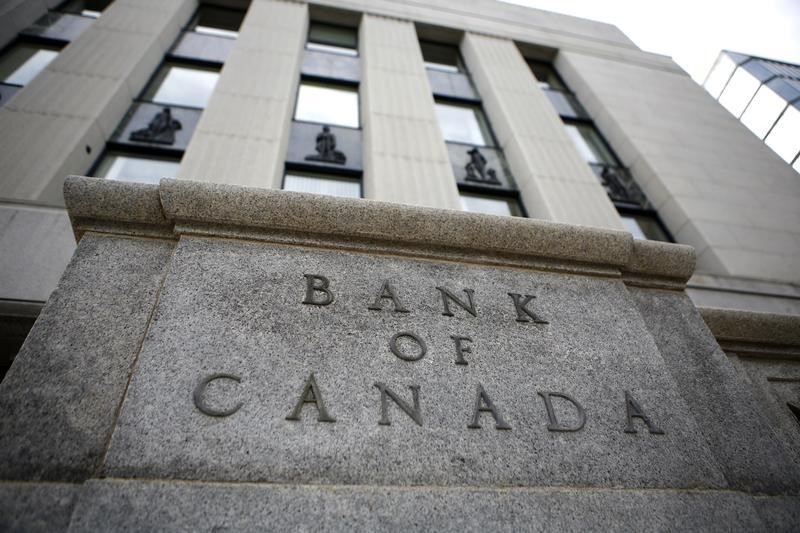By Randall Palmer and Leah Schnurr
OTTAWA, Jan 22 (Reuters) - When the Bank of Canada blinked
in the face of its currency's slide, wrong-footing many who had
bet on an interest rate cut, it sowed some doubts about both its
readiness and ability to help the struggling Canadian economy
through some hard times.
Governor Stephen Poloz, offering a rare glimpse into the
central bank's debate, said on Wednesday policymakers initially
leaned towards a cut, but cited the Canadian dollar's slump and
pending fiscal stimulus as factors that gave them pause.
For some analysts, that, combined with what they thought was
Poloz's too rosy economic outlook, suggested less room for
policy maneuver, possibly limiting the central bank to a
supporting role in efforts to bolster the struggling economy.
The acknowledgment of negative effects of the currency's
slide, which Poloz has repeatedly touted as a boon for Canada's
exporters and the economy at large, means that further easing
could be less appealing or certain.
It also means that the ball is now in the court of the new
government of Prime Minister Justin Trudeau and it is up to yet
to be detailed spending plans to dispel fears that the commodity
rout could drive the resource-rich economy back into recession.
"They're admitting that they cannot do anything anymore and
therefore fiscal policy will have to take the lead," said CIBC
Capital Markets Senior Economist Benjamin Tal.
While some economists welcomed that Poloz acknowledged for
the first time widespread concerns about the pain the Canadian
dollar's drop to 12-year lows was inflicting on consumers, some
were rankled by his downplaying of global economic and market
headwinds.
"Ever since oil prices began to fall in 2014, the Bank of
Canada seems to be suggesting that it's temporary. They're
losing credibility, in my view," said Sherry Cooper, chief
economist at Dominion Lending Centres.
"These developments in the commodity market, oil in
particular, are not temporary developments. This is a sea
change, this is a massive structural shift."
To be sure, some economists say with the overnight rate
already at 0.5 percent, further cuts would not do that much to
boost the economy while Canada's exporters have yet to see the
full benefits of the weak currency.
Poloz, 2-1/2 years into his seven-year term, is also facing
different challenges than his predecessor Mark Carney, who now
heads the Bank of England and earned praise and rock-star status
for helping steer Canada through the global financial crisis
relatively unscathed. But while a sound banking system and a
commodities "supercycle" helped shield the economy back then,
Poloz now has to deal with a collapse in commodity prices.
TRANSITION TO STAGNATION?
The central bank has been counting on non-oil exports,
supported by a weaker Canadian dollar and U.S. strength, to
offset the sharp pullback in investment in the energy sector
caused by crude's more than 70 percent slide from mid-2014
levels. However, with the energy industry also acting as a major
source of demand for the manufacturing sector, some economists
warn there could be more pain ahead.
"Hopefully the recent decline in the Canadian dollar will
help the factory sector, but we know that energy is tied to
manufacturing," said Emanuella Enenajor, North America economist
at Bank of America-Merrill Lynch.
"So the risk is that the factory sector will continue to
struggle during this 'transition period', and the big risk here
is that we won't transition away from energy to manufacturing
but that we'll transition from energy to simply a stagnant
economy."
When asked about the argument that the central bank has
effectively run out of tools to stimulate the economy, its
spokeswoman pointed to Poloz's speech in December where he
outlined several unconventional tools it could still use,
including negative rates or asset buying.
Even so, some economists argued those were emergency
measures best kept on standby for times of truly deep distress
such as the global financial crisis.
"The risks are still very acute in the global economy, they
have very, very little monetary policy flexibility left and they
need to be able to counter those risks if and when they really
do accelerate," said Derek Holt, economist at Scotiabank.
Since the release of the bank's statement on Wednesday, the
currency has risen more than 3 percent and markets pared back
bets on further cuts, though they still price in about an 80
percent chance of a quarter point cut by mid-year.
Some economists said Poloz's potentially biggest
accomplishment was to reintroduce some uncertainty into the
market, making the Canadian dollar less of a one-way bet.
"Ever since he's started, he's been seen as the person who
wanted to drive the Canadian dollar down. It's been seen as his
agenda," said Desjardins economic strategist Jimmy Jean.
The message on Wednesday was more balanced, he said. "It
kind of sets some boundaries as to the level of tolerance that
the bank has with respect to the currency's depreciation."
